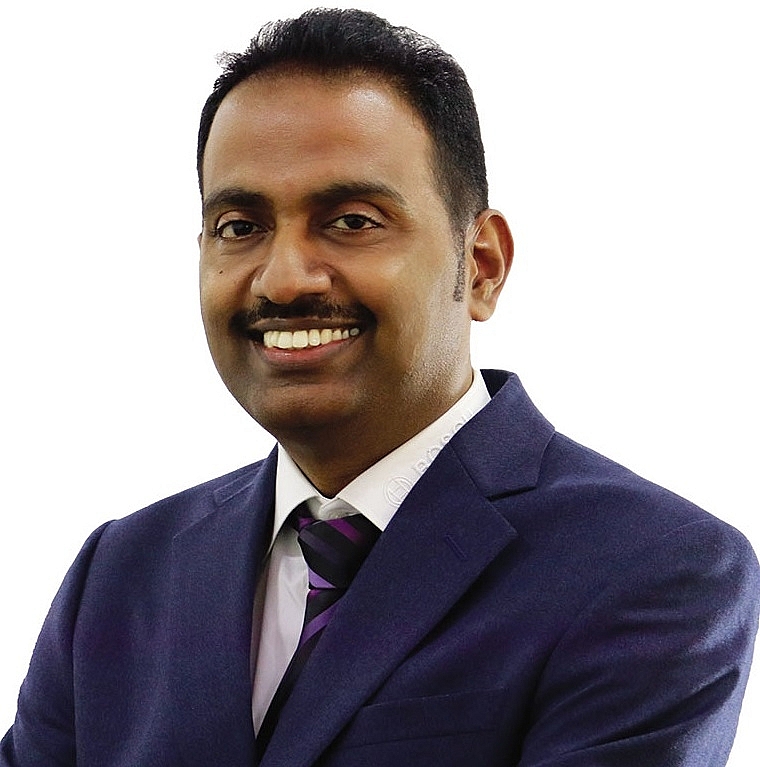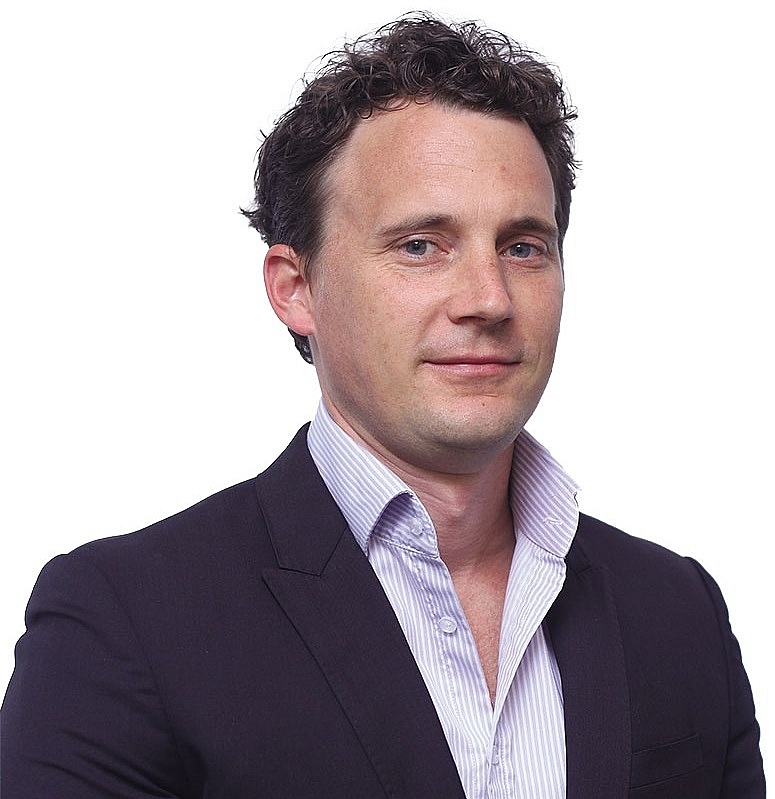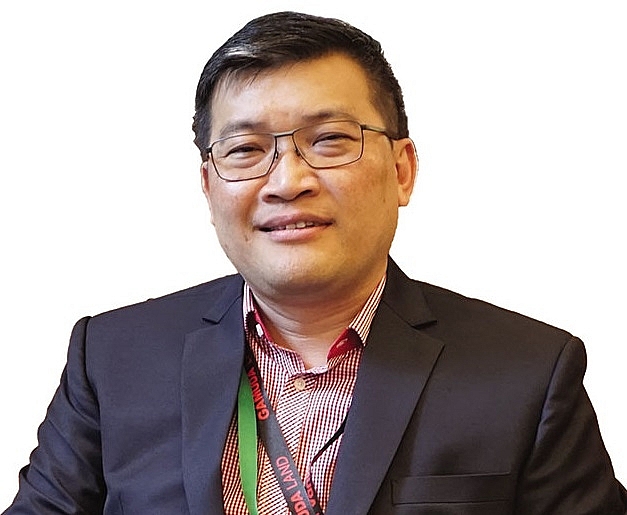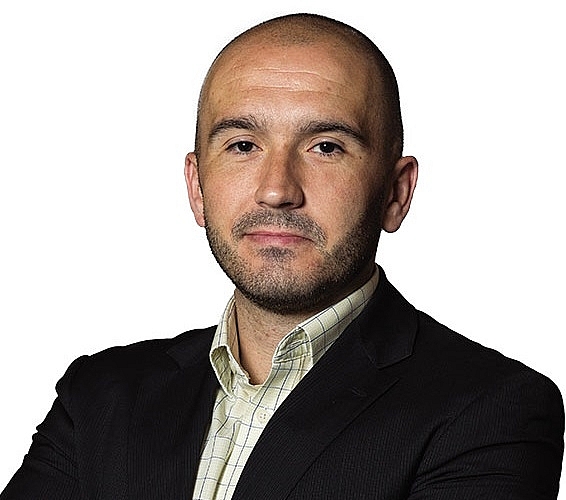Insiders offering an outsider’s view
Guru Mallikarjuna Managing Director, Bosch Vietnam
 |
| Guru Mallikarjuna |
When I first came to Vietnam four years ago, I was impressed by the vibrancy and the dynamism of the country’s economy. That still holds true today.
After more than 30 years of Doi Moi, Vietnam has become one of the most rapidly-urbanising and industrialising countries in the Asia Pacific region, and is one of the most attractive destinations for investment. The country is located at the junction of the Southeast Asia region, has political stability, conducive policies, and a labour force which is hardworking and willing to learn. The openness for innovation is something we have seen in policymakers, resulting in economic reforms, more transparency, and improved ease of doing business. These factors have fuelled the robust inflow of foreign direct investment (FDI) into the country over the past decades. FDI firms now contribute approximately one-quarter of the country’s GDP, as compared to a proportion of 2 per cent in the early 1990s. This is an indicator of the friendly investment environment for foreign investors eyeing the Vietnam market.
As for Bosch, we attribute our success partly to the favourable conditions for doing business in the country. Bosch has its main office in Ho Chi Minh City, with branch offices in Hanoi and Danang and a Powertrain Solutions plant in the province of Dong Nai to manufacture pushbelts for continuously variable transmissions in automobiles. We have two research and development (R&D) centres for automotive, software, and engineering technology. As an FDI company, we are proud to have contributed to the development in Vietnam in terms of economics, societal development, and environmental protection.
In fiscal year 2016, Bosch recorded consolidated sales of about $99 million in Vietnam, achieving a year-on-year growth of more than 40 per cent. Total net revenue, including sales to non-consolidated companies and internal deliveries to affiliated companies, stood at $322 million.
Over our first decade in the country, we cultivated sustainable growth and built up a strong workforce of more than 3,500 dedicated associates in production, R&D, sales, and services. Our plant has been adopting green manufacturing practices since 2015 with a wastewater recycling system worth roughly $1 million. We will have invested a total of $372 million in the plant by the end of 2018.
Bosch is also amongst the few companies in the country to offer free certified vocational training through its Technical Industrial Apprenticeship (TGA) programme in the province of Dong Nai. To date, Bosch has made a total investment of almost $1 million into this dual-vocational training programme. The TGA model can be expanded and contribute added value to improve workers’ level of education and secure employment by collaboration among the government, business, and civil society.
Looking forward to the new year, we believe that with Vietnam’s momentum of growth in 2017 and the national vision of a smart and green economy, Bosch will continue to develop in Vietnam. This development will be not only in our conventional domains (namely mobility solutions, industrial technology, energy and building technology, and consumer goods), but also in our new areas of expertise in connectivity such as smart cities, smart homes, connected mobility, and Industry 4.0. In order to adapt to future trends and needs, it is essential for the government and businesses to co-operate and develop tailor-made local solutions.
And last but not least, as Tet is coming, I wish all of us a 2018 full of energy and the readiness to achieve new successes. Happy Lunar New Year!
Gabe Carter Technical Director, Aurecon Vietnam
 |
| Gabe Carter |
Reforms in visa requirements, infrastructure, and environmental protection are all key elements to sustaining this impressive growth in the hospitality sector. Areas such as Quang Ninh, Danang, Cam Ranh, Ho Chi Minh City, and Phu Quoc are the main locations of interest for us.
The scale and abundance of world class projects being planned in Vietnam is incredibly exciting and, as a result, we are seeing participation from many of the world’s best architecture and engineering practices, bringing innovation, design-led thinking and eminence to the table.
A significant part of our business is engineering, design, and advisory consulting for high-end hotels and resorts. Hospitality is enjoying significant growth forecasts with both international and domestic tourism flying high. We are also seeing a gap in the market for mid-range hotels catering for the Vietnamese domestic business traveller and mid-budget tourist market.
We are also seeing a robust demand for A-grade commercial office spaces, and anticipate a concurrent appetite for the design of sophisticated buildings to cater for the attractive rental yields currently seen in Vietnam. This demand is fed by an undersupply coupled with increased investment by foreign firms looking to enter the market and occupy A-grade tenancies.
The high-end residential property market has also been buoyant. Although many projects are under design, there is still a significant demand. Should there be an impact from the tightening of monetary-lending critera, it is likely to be offset by the adjustment to foreign ownership regulations and reforms designed to encourage foreign investment in the residential sector. It is amazing to watch the speed in which globally eminent projects like Aurecon’s Landmark 81 have risen from the ground to dominate the Ho Chi Minh City skyline. The Thu Thiem master plan also presents a compelling look into the future of the city and how it will be transformed in the next decade.
Other areas which will see significant opportunities include industrial growth off the back of manufacturing success, and major infrastructure such as the metro, airport terminals etc.
Lastly, it is important to note that the upcoming prospects for human capital in the engineering force are huge. There is significant graduate output from universities and colleges across the country and, when considered in conjunction to the cost advantages of doing business in Vietnam, there is potential for these young professionals to gain invaluable experience in the fast-growing market. Vietnam’s young workforce will be able to apply their technical skills locally and around the world in the near future.
At Aurecon we see a very bright future full of opportunities for business growth and are vigorous in our talent development investment, ensuring that we have the smartest technical teams at the forefront of our service who find and solve our clients’ problems through innovation and future-thinking.
Aurecon is a global engineering consultancy firm with 8000 staff worldwide and a team of 135 here in Vietnam. We have been operating in Vietnam for 10 years and so far 2018 is shaping up to be particularly fruitful in terms of current workload, as well as a healthy and sustainable opportunity pipeline.
Wyeren Yap Vooi Soon General Director, Gamuda Land Ho Chi Minh City
 |
| Wyeren Yap Vooi Soon |
I came to Vietnam 10 years ago for the first project of Gamuda Land, the Yen So development and sewage treatment plant project.
Vietnam has changed a lot in a very short time from an economic standpoint, and society is adapting to new habits and demands. In particular, the year 2017 marked a turning point of outstanding development of the country in the last 10 years.
The position of Vietnam’s economy climbed by 12 ranks on the Global Innovation Index 2017, from 59th out of 128 to 47th out of 127, a real motivator for several industries’ development, particularly real estate.
Especially intriguing to me is that, with the economy improving significantly, 2018 will be a promising year for the real estate market. Many foreign investors also realise the potential of Vietnam and are ready to grab this opportunity.
I have found that economic growth also has a great impact on people’s demands. In the real estate market, I understand that Vietnamese people have now set the living environment as a priority factor for their desirable housing situation. The wave of urbanisation and modern lifestyles makes many people wish for a more comfortable life, in a calm and convenient space. This is not only a challenge, but also a chance for many developers like Gamuda Land to make dreams come true.
Nurturing this dream for 10 years, my team and I have researched carefully, and we strive to make a difference on the Vietnamese real estate market. Each and every development of Gamuda Land carries within itself a unique characteristic to create a wonderful living experience, a place where you can settle down and start a family. The result of our holistic approach to town building is a collection of highly-desirable properties that continue to deliver value to our customers in terms of a better quality of life and capital growth, year after year.
Over 10 years in Vietnam, we have spread our wings to create sustainable towns in Vietnam, with Gamuda City in Hanoi and Celadon City in Ho Chi Minh City.
For Gamuda Land in general and our team in particular, success is not calculated by the profit we earn or how we spread our market coverage, but it lies in customers’ trust and satisfaction. That is the target we pursue: To create communities people can consider a real home for generations and where they can experience a long life. We not only create a living space, but a space where residents can fully enjoy their lives: where they can spend their time with loved ones, where they can go shopping to their heart’s desire, where they can relax within nature, and where they can provide a proper education for their children.
Therefore, in all of our buildings, the notable difference we have made is to build a friendly and close society. We plan very carefully in order to make a strong community for this and future generations.
Aside from applying Singapore’s CONQUAS standard, we need careful planning and the ability to bring all these places together mindfully. They have to be organised around a ‘town square’, often by a beautiful lake with a waterfront and a promenade, to give the town a sense of peace. In addition, we focus on other engagement activities to increase connectivity among the community, such as ‘art of urban lifestyle events’, ‘Run for The Heart’, ‘X’mas in Fairyland’, weekend outdoor activities, and more. That is the way Gamuda Land connects people with each other, with nature, and with themselves.
As a town maker, I believe that to create a lifestyle township is to create a place that everybody can call home. With our significant projects in Vietnam, from Gamuda City to Celadon City, we now continue to make more dreams come true.
Thomas Harris Managing Director, DHL eCommerce Vietnam
 |
| Thomas Harris |
A young population, rising incomes, growing internet and mobile adoption – Vietnam has the ingredients for a thriving e-commerce economy. It’s a very exciting place to be right now and I am absolutely positive about the growth opportunities this amazing country has to offer.
The country’s huge untapped potential and expected high growth makes e-commerce especially attractive.
According to Euromonitor, the Vietnamese e-commerce market is expected to grow in revenue from $1 billion in 2016 to $2.3 billion in 2020. That’s more than double in just four years; no other industry comes close to such solid growth rates.
With the rise of e-commerce comes increased demand for logistics. Last year alone, logistics made up some 3 per cent of Vietnam’s GDP, and it is expected to reach as much as 8 to 10 per cent of GDP by 2025.
Right now, the country is witnessing unprecedented levels of investment, particularly in the e-commerce sector. The most recent was JD.com’s investment into Tiki.vn. It is also awash with delivery companies. Increased competition will work wonders for creating greater value and improving the experience for customers across the board.
Last year proved a pivotal year for Vietnam in terms of investment. It was also the year we saw fit to enter the market. As part of the world’s leading logistics company, we saw an opportunity to provide Vietnam with a high-quality delivery service with global solutions tailored for the local market such as tracking, visibility, API integration, and secure cash-on-delivery payment.
Today’s online shoppers, whether they are in Vietnam or anywhere else, expect their delivery experience to be convenient, intuitive, and seamless. Likewise, e-tailers want to be able to sync their orders from click to delivery, tracking shipments on their mobile phones and, if necessary, be able to inform and update customers about the delivery progress.
To improve last-mile deliveries, DHL eCommerce Vietnam started rolling out service points across the country at the end of last year. Set to number thousands, we’re establishing these in conjunction with retail partners such as cafes, small shops, and convenience stores. Radically improving choice, convenience, and flexibility for buyers and sellers alike, DHL service points will provide alternate pick-up and delivery points to our customers as well as offer our local partners an alternate source of income.
Nevertheless, like some other Southeast Asian markets, Vietnam also poses a few challenges such as traffic congestion and the higher logistical costs associated with rural areas or failed deliveries, which can all impact growth.
In some of these areas, such as transport infrastructure, robust IT networks, as well as data security and privacy, the government can do a lot. Thankfully, the Vietnamese government is totally on board with this and lending its full support to developing the industry.
In other areas, the industry needs to make all the moves. With the growth of online shopping, the volume of packages that need to be picked up, packed, and shipped expands exponentially. Logistics companies, therefore, need to deliver large volumes of packages quickly, sometimes even within a specific or narrow delivery time window.
Given the higher volume of e-commerce transactions, logistics providers also need to manage a corresponding volume of returned, exchanged, and damaged goods. Coupled with bad addresses, rural areas, and failed delivery attempts, this poses significant challenges for e-commerce logistics.
That’s where technology comes in. With the right infrastructure in place, we can send pre-delivery alerts such as SMS and calls, to notify recipients and help lower the number of failed delivery attempts. Elsewhere, dynamic re-routing can prompt couriers to change their route if the recipient is not at home, while alternate delivery and collection points along with GPS tracking can help resolve the problems associated with bad addresses or rural areas.
In the near future, I foresee a very forward-thinking, very savvy Vietnam, a nation that is not only technologically advanced, but has a young and highly-driven population that will make waves in the global arena.
The growing millennial population will also be very passionate about contributing to the environment and society. Leading my team in Vietnam, I have personally witnessed how motivated they are when they know that their job contributes to the benefit of society. Through our DHL GoTeach, GoGreen, and GoHelp programmes, my team is able to contribute to supporting education for the less privileged, offer support towards our Group-wide goal to reduce all logistics emissions to zero by 2050, and provide logistics support after natural disasters through our GoHelp program. The knock-on effect will be more growth and a more prosperous future in Vietnam.
What the stars mean:
★ Poor ★ ★ Promising ★★★ Good ★★★★ Very good ★★★★★ Exceptional
Related Contents
Latest News
More News
- The generics industry: unlocking new growth drivers (February 04, 2026 | 17:39)
- Vietnam ready to increase purchases of US goods (February 04, 2026 | 15:55)
- Steel industry faces challenges in 2026 (February 03, 2026 | 17:20)
- State corporations poised to drive 2026 growth (February 03, 2026 | 13:58)
- Why high-tech talent will define Vietnam’s growth (February 02, 2026 | 10:47)
- FMCG resilience amid varying storms (February 02, 2026 | 10:00)
- Customs reforms strengthen business confidence, support trade growth (February 01, 2026 | 08:20)
- Vietnam and US to launch sixth trade negotiation round (January 30, 2026 | 15:19)
- Digital publishing emerges as key growth driver in Vietnam (January 30, 2026 | 10:59)
- EVN signs key contract for Tri An hydropower expansion (January 30, 2026 | 10:57)

 Tag:
Tag:




















 Mobile Version
Mobile Version